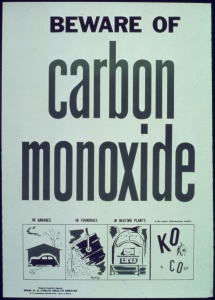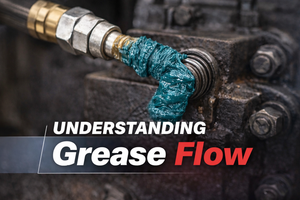Sandblasting and the Dangers of Carbon Monoxide Poisoning
By on Apr 03 2017

When it comes to sandblasting, the importance of safety cannot be stressed enough. That safety expands past the blast suit into —the entire breathing air system.
Carbon Monoxide poisoning is a dangerous reality for sandblasters if they don't take the proper precautions.
 Carbon Monoxide Poisoning
Carbon Monoxide Poisoning
Carbon Monoxide (CO) is an odorless and colorless gas that is produced from burning fuel or any materials containing carbon.
CO poisoning often shows itself in the form of flu-like symptoms including headaches, vomiting, weakness, and more. It can cause you to pass out and can even cause death. If you experience any of these symptoms stop work immediately. Report your symptoms to your employer and doctor to determine whether or not you were exposed to carbon monoxide.
No one is immune to CO poisoning, but certain people are higher risk than others. This includes children, the elderly, people who smoke, and people with chronic heart disease, breathing problems, and anemia.
Dangers in Sandblasting
When hooking up a diesel-powered air compressor to a supplied-air respirator, there is a danger of CO poisoning. If the breathing air is supplied from an air compressor, this hazard can occur from either the breakdown of oil lubricants in the compressor or contamination from diesel exhaust.
When you're sandblasting, there are other common gaseous smells you might be used to, so the addition of CO will not alter those smells. When you inhale CO, it alters blood's oxygen levels and deprives vital organs of that oxygen.
CO can take over in mere minutes and cause you to pass out. If your helmet is still one when you're passed out, you will continue to breathe in the CO.
What can you do to prevent this from happening?
There are a number of steps you can take to help prevent exposure to carbon monoxide when you're sandblasting:
- Ensure that your equipment is properly maintained and perform regular inspections by a trained professional.
- Test the quality of air in the breathing air system at least twice a year to ensure it meets CSA specifications.
- Draw air from a clean outdoor source, install ventilation systems in work areas —and use a carbon monoxide detector.
Carbon Monoxide Monitor/Alarms are available to help detect the presence of CO. They are connected directly to the air supply and will alert the wearer of the presence of CO with an alarm and flashing lights.
If you suspect that you or someone else have been exposed to CO, be sure to immediately move to an area with fresh air, especially outdoors.
Call 911 and find someone certified to administer CPR if the person has stopped breathing. However, be aware that attempting revival may cause the reviver to be exposed to CO as well. This is a scenario when using revival equipment is safer for all involved.
Sources:
https://www.cdc.gov/co/faqs.htm http://www.emedicinehealth.com/carbon_monoxide_poisoning/article_em.htm http://elcosh.org/document/1229/d000394/abrasive-blaster-dies-of-carbon-monoxide-poisoning.html https://www.cdc.gov/niosh/face/in-house/full9131.html http://www.emedicinehealth.com/carbon_monoxide_poisoning/article_em.htm https://www.osha.gov/OshDoc/data_General_Facts/carbonmonoxide-factsheet.pdf







